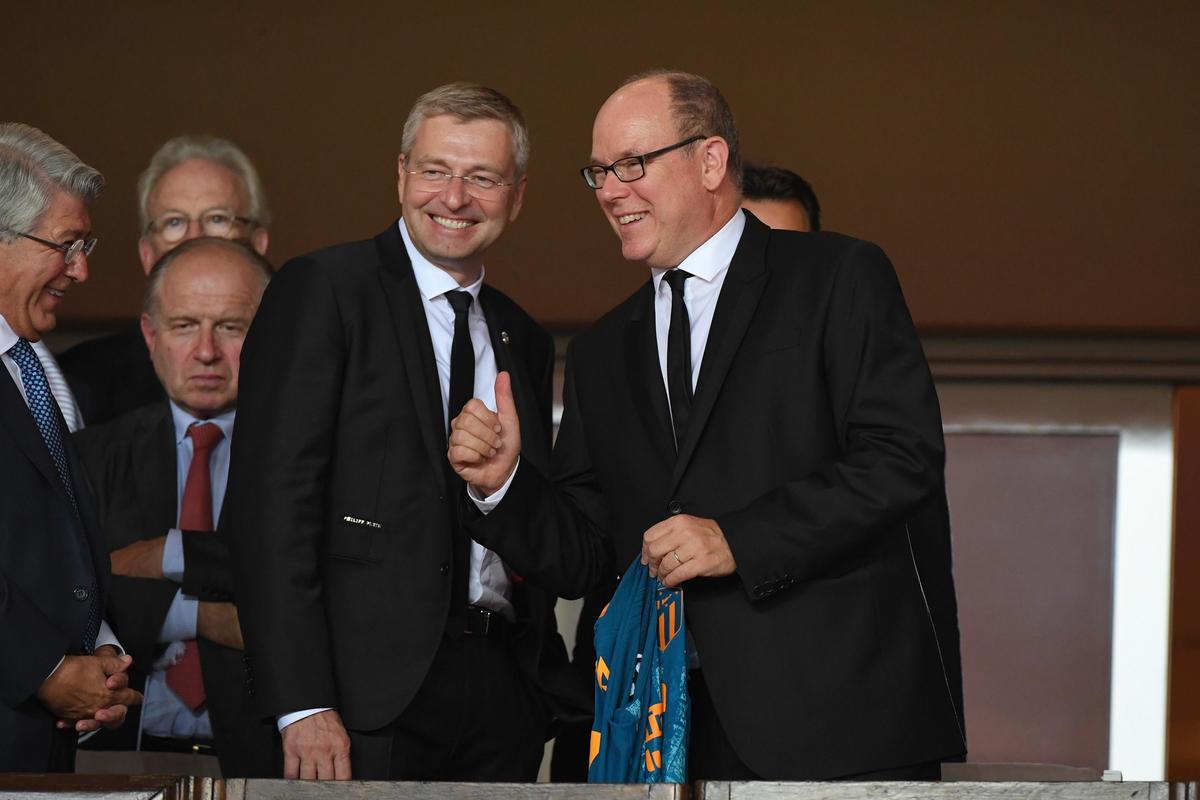After being detained overnight by police in Monaco, Russian billionaire Dmitri Rybolovlev was charged yesterday (8 November) based on claims that he attempted to influence senior Monegasque authorities involved in his ongoing dispute with the Swiss art dealer Yves Bouvier.
Though the exact charges have not been confirmed, Rybolovlev and three others are suspected of influence peddling and bribery according to a statement by Monaco's chief prosecutor Sylvie Petit-Leclair. Rybolovlev and the others have been released from custody but their movements are subject to security constraints.
The charges represent an about-face in the long-running feud between Rybolovlev and Bouvier. Earlier this year, Geneva's top federal prosecutor, Yves Bertossa, charged Bouvier with fraud in relation to the dispute; Monaco police had previously arrested Bouvier at Rybolovlev’s Monaco mansion in 2015, after Rybolovlev filed a criminal complaint. The Russian tycoon accused the dealer of fleecing him of around $1bn in the purchase of several blue-chip works by the likes of Pablo Picasso, Gustav Klimt and Paul Gauguin, often referring to it as “the largest art fraud in history”.
Hervé Temime and Thomas Giaccardi, Rybolovlev’s lawyers, said in statement when he was taken into custody on Tuesday that they will “clearly be able to demonstrate that Yves Bouvier, who is accused of a huge fraud, benefited and continues to benefit from judicial treatment in Monaco that is far from unfavourable”. Bouvier’s lawyer, David Bitton, said the turn in events “suggests otherwise” in a phone call with The Art Newspaper: “This signals that there is not a strong case brought against my client.”
At the center of the fresh spate of charges brought against Rybolovlev is a series of messages found on a mobile phone that his lawyers handed over to investigators as part of the case against Bouvier; when prosecutors reviewed the messages, they discovered material that allegedly compromised the Russian billionaire. Among those released were several relating to a visit Monaco’s justice minister, Philippe Narmino, made to Rybolovlev’s ski chalet just days before Bouvier’s arrest in 2015. Narmino retired in September 2017, after friendly text messages with Rybolovlev’s lawyer Tetiana Bersheda and other Monaco officials, dating from early 2015, were published.
Narmino's wife Christine and son Antoine were also investigated for alleged conspiracy, while Rybolovlev's lawyer Tetiana Bersheda was suspected of collusion as part of the probe that led to the recent charges, according to the Associated French Press.
“We regret the breach of confidentiality of the judicial process that this information represents”, Rybolovlev’s lawyers said in their statement, adding that “the presumption of innocence in relation to Mr Rybolovlev is strictly respected”.
The Russian oligarch purchased 38 works of art from Bouvier over the course of a decade for a total of around $2bn, the prices of which he claims were inflated by the dealer. One of those works is Salvator Mundi, believed to be by Leonardo da Vinci, which became the most expensive work of art ever sold when it was purchased from Christie’s for $450m last year; the painting was due to be unveiled at the Louvre Abu Dhabi on 11 November, but its display has been inexplicably deferred.
Bouvier has adamantly denied Rybolovlev’s claims and their ensuing legal spats have been waged in in Monaco, Singapore and Switzerland. Rybolovlev struck up another related case in the US last month when he sued Sotheby’s for $380m, claiming the auction house was complicit in Bouvier’s alleged fraud. Sotheby’s, too, denies the allegations.


